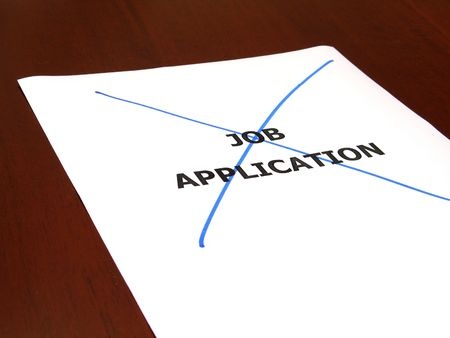
Looking for jobs is hard work, even more so when you’re out of work or stuck in a job you despise. It’s a lot of repeating yourself, and a lot of getting knocked back. Dealing with rejection is difficult, but use it as a way to motivate and improve and you’ll find it’s all worthwhile.
They say that insanity is doing the same thing over and over again, but expecting different results. If you aren’t getting responses to your CV, go back and look at it again. Are there any typos or errors you missed? Maybe your description of a previous role is vague, or hard to understand. If you can’t spot anything wrong, get a friend to read over it for you. And ask them to be brutal! Often, they are simple mistakes like typos or having an unprofessional e-mail address that can hold you back most – in a competitive job market, simple mistakes are ones that you can’t afford to make.
Or maybe you’re struggling to find the jobs that match your skills – if you’ve got a very specialised work history, perhaps you’re a specialist lawyer or have worked in a very niche industry, you could be looking in the wrong place. Instead of the generalist job boards, try looking for a more niche one that specialises like you do, or contact a specialist recruitment agency who will have the contacts to find you work.
It’s easy to get defensive when you’re faced with criticism. And there isn’t much criticism stronger than being told you aren’t good enough for a job – but blaming everyone else is the wrong attitude. You might be perfect for a job, but if the recruiter or hiring manager that has no-piled your CV can’t figure that out, the hard truth is that you probably haven’t sold yourself to them well enough.
Instead of pointing the blame elsewhere, reflect on what you might be doing wrong. Once you’ve had a rejection, ask for some pointers on why you’ve not been a successful applicant. You might not be able to get much (popular vacancies like for reception or warehouse work can receive hundreds of applications in just a few days, so you might be quickly forgotten if you aren’t successful) but it never hurts to phone up and ask. Recruiters may well take note of your proactive behaviour and give you a second look.
Recruitment consultants are on your side – after all if agencies don’t find people jobs, then they won’t make any money. But you have to be on their side too. Recruiters do a great job of connecting people and businesses, but if you don’t keep them in the loop with the jobs you want then they can’t help you secure them. And ask for their advice too – you might apply for jobs once every year or two at most, but they do it every single day, so don’t be afraid to try and get help from the experts.
But do your own homework too. Recruitment has changed a lot, and is still changing. If you haven’t changed jobs for 5 or more years, you may well be going about things the wrong way. CVs should be tailored to each job you apply for, and contain the specific keywords to get past the gate-keeping computer algorithms that do some of the applicant screening. That’s especially important now with high demand skills as employers are becoming increasingly specific in the requirements. Thankfully there’s more and more information available online to help job seekers to succeed in finding new jobs.

